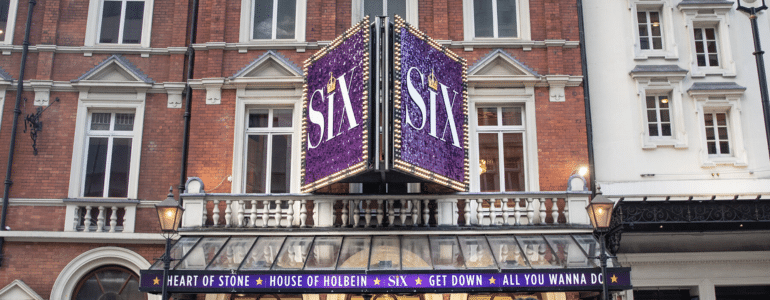GUEST BLOG: Tips for Finding the Perfect Venue for Your Project by Britt Lafield
So you have raised all the capital for your production, you have your cast, you have your crew and marketing team. Great! Now you need a theater. In many ways, your theater is as important as the script, the director, and the cast. It is a physical extension of your production, and finding the right one is a major step in producing a success.
Having been a theatrical producer for many years and the General Manager of several theaters in the metropolitan New York area, I have seen shows that looked like their set was meant to be in a space and sets that have been shoe-horned in. I have dealt with shows that started out thinking the theater was totally wrong for their production, only to get creative and change the space to fit their needs, making their productions even more memorable in the process. Finding a theater is like buying a house. It is not something to be done on a whim without careful forethought.
To continue the house simile: if you were looking to buy a house would you just look at the color of the walls? Likely not. So here are some things to keep in mind while shopping for a theater.
- Be realistic about your sales potential. The majority of your weekly running costs will be your theater rental, and a smart choice in venue will allow you to absorb and ride out the lean, tough weeks (like previews), freeing up money to be spent on marketing and advertisement. We all want our shows to sell out their entire run and perform forever – but know your target audience and don’t get a theater larger then you think you can sell. If you realistically think you will sell 75 to 100 seats a night, there is no reason to get a 250-seat theater, even if it’s available and in a good location. Having a two-week run in a prestigious theater is not as impressive as running a year in a lesser known space. If you underestimate your sales and suddenly find yourself not having enough seats to get everyone in every night, well there are a lot worse problems then having a “SOLD OUT” notice on your ticketing site for days on end. And you can always transfer if that need becomes evident.
- Know your needs and prioritize them. Like so many things in life, you will probably not find a venue that satisfies all your needs. Go into your search with a list of what is important, and put them in order of priority. Is the number of seats your greatest priority? Or is having an intimate space so the audience feels like they are in the room with your actors what you are looking for? Do you need wing space or is a stage that is fixed-wall to fixed-wall okay? What about grid height? Do you want your set to be a house with two stories or does the action take place in a trailer? Think of every aspect of your production and take them all into account when looking for a theater. Solving set or lighting problems before you even load into the theater will help your budget and your frame of mind.
- Realize that different theaters will provide you with different amenities. Some spaces come with a lighting package in-house. Some have an amazing sound system. Some come with nothing and you have to rent it all (a “four wall” deal). Are you producing a musical with a lot of lighting effects or a kitchen sink drama that wants more practical light? Does your sound design want effects to be coming from every corner of the theater or is it an acapella musical? Theaters charge you for what they give you. So why get a space that charges you more for lighting or sound when you don’t need it (see Item 2)?
- Think of the experience you want your audience to have. I am a firm believer that the show doesn’t start when the lights go down, but as soon as the audience member enters the space (even before that, if you can pull it off). Make the common spaces like the lobby reflect your production. If the set is a Victorian manor, make the lobby into another room in the house. If the location is a town’s Main Street, make your concessions area into the local bar. The more you make the show an all-around and immersive experience for the audience, the more they will remember it. It is perfectly fine to simply have your production in a beautiful theater, but in this age of massive digital influx, theatre (and your production) must find ways to make any theatrical experience a unique one.
As in every aspect of producing theatre there will be surprises when dealing with your venue, so anticipate them as best you can. The more prepared you are before you enter into your search, the more questions you already have an answer to, the better it will be for your overall production.
___________________________________________________________________________________________________________________________________________________________________________________________________
Britt Lafield is the General Manager of the Davenport Theatre and an independent theatrical producer with 20 years experience in New York and Regional Theater, having produced on every level in New York, short of Broadway. He was also the Festival Administrator for the New York International Fringe Festival from 2009- 2013, and is the creator and producer of the Fringe Encore Series that just celebrated is 11th Anniversary.
Podcasting
Ken created one of the first Broadway podcasts, recording over 250 episodes over 7 years. It features interviews with A-listers in the theater about how they “made it”, including 2 Pulitzer Prize Winners, 7 Academy Award Winners and 76 Tony Award winners. Notable guests include Pasek & Paul, Kenny Leon, Lynn Ahrens and more.













